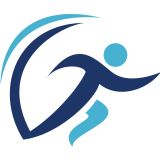In this article:
What is an Exercise Physiology Degree?
An exercise physiology degree focuses on understanding how physical activity affects the human body, particularly in terms of improving health, performance, and managing chronic diseases. This field of study explores how the body’s systems—such as the cardiovascular, respiratory, and muscular systems—respond and adapt to exercise. Students learn about the science behind exercise, including topics like biomechanics, metabolism, and nutrition, and how these factors contribute to overall health and fitness.
The curriculum typically combines both classroom learning and hands-on experience. Students take courses in anatomy, physiology, kinesiology, and sports science, gaining a deep understanding of how exercise influences various physiological processes. Laboratory work is a key component, where students learn to conduct fitness assessments, measure body composition, and analyze cardiovascular and respiratory responses to exercise. This practical experience helps students develop the skills needed to work in clinical, athletic, or research settings.
Program Options
Program options for an exercise physiology degree vary depending on the level of education and career goals. Here are some common pathways:
- Associate Degree in Exercise Science: This two-year program provides foundational knowledge in exercise science, including basic anatomy, physiology, and fitness assessment techniques. It is often a stepping stone to further education or entry-level positions in fitness and wellness.
- Bachelor’s Degree in Exercise Physiology: A four-year program that offers a comprehensive education in exercise science, including advanced courses in exercise physiology, biomechanics, and nutrition. It includes practical experience through labs and internships, preparing students for careers as exercise physiologists, fitness trainers, or wellness coaches.
- Bachelor’s Degree in Kinesiology with a Concentration in Exercise Physiology: Some universities offer a broader degree in kinesiology with a specialization in exercise physiology. This program combines core kinesiology coursework with focused study in exercise physiology, providing flexibility in career options.
- Master’s Degree in Exercise Physiology: This advanced degree typically takes 1-2 years and involves in-depth study of exercise science, research methods, and advanced clinical practice. It is ideal for those looking to pursue roles in research, advanced clinical settings, or teaching.
- Doctoral Degree (Ph.D.) in Exercise Physiology: For those interested in research or academic careers, a Ph.D. offers the opportunity to conduct original research in exercise science, teach at the university level, or work in high-level consulting roles. This program usually requires 4-6 years to complete and involves extensive research and dissertation work.
Skills You’ll Learn
An exercise physiology degree provides students with a range of skills essential for understanding and applying exercise science in various settings. Here are some key skills learned:
- Exercise Assessment and Testing: Students learn to conduct fitness assessments, such as VO2 max tests, body composition analysis, and muscular strength evaluations. They gain proficiency in using equipment and interpreting results to develop personalized exercise programs.
- Knowledge of Human Anatomy and Physiology: A deep understanding of the musculoskeletal, cardiovascular, and respiratory systems is developed, allowing students to analyze how exercise impacts these systems and contributes to overall health.
- Program Design and Implementation: Students acquire skills in creating and implementing exercise programs tailored to individual needs, including those for improving athletic performance, managing chronic diseases, or enhancing general fitness.
- Biomechanics and Kinesiology: Understanding the principles of biomechanics and kinesiology helps students analyze movement patterns, identify potential issues in exercise techniques, and optimize performance and injury prevention.
- Nutrition and Wellness: Knowledge of how nutrition affects exercise performance and recovery is integrated into program design. Students learn to advise clients on dietary strategies that complement their fitness goals.
- Clinical and Therapeutic Exercise: Training includes designing exercise programs for individuals with medical conditions such as cardiovascular disease, diabetes, or orthopedic injuries, focusing on rehabilitation and improving quality of life.
- Research and Data Analysis: Students develop skills in conducting research, analyzing data, and applying scientific methods to evaluate exercise interventions and their effects on health and performance.
- Communication and Counseling: Effective communication skills are honed to educate and motivate clients, provide feedback, and address behavioral changes related to fitness and health goals.
What Can You Do with an Exercise Physiology Degree?
With an exercise physiology degree, graduates can pursue various careers focused on improving health, fitness, and athletic performance. Here are some common career paths:
- Exercise Physiologist: Design and implement exercise programs to improve physical fitness and manage chronic diseases. Work in healthcare settings, fitness centers, or rehabilitation facilities. This role often involves conducting fitness assessments and tailoring exercise plans to individual needs.
- Rehabilitation Trainer: Design and implement exercise-based rehabilitation programs for patients recovering from injuries or surgeries. Work in physical therapy clinics or rehabilitation centers.
- Fitness Trainer / Group Fitness Instructor / Personal Trainer: Design and lead individual or group workout sessions, helping clients improve their health and fitness. These professionals work in gyms, community centers, or provide private training.
- Strength and Conditioning Trainer: Develop training programs for athletes to enhance their performance, strength, and conditioning. Work with sports teams, schools, or athletic organizations to optimize physical performance and prevent injuries.
- Clinical Exercise Specialist: Work in clinical settings, such as hospitals or rehabilitation centers, to provide exercise interventions for patients with chronic illnesses or injuries. This role may involve working alongside other healthcare professionals to integrate exercise into treatment plans.

